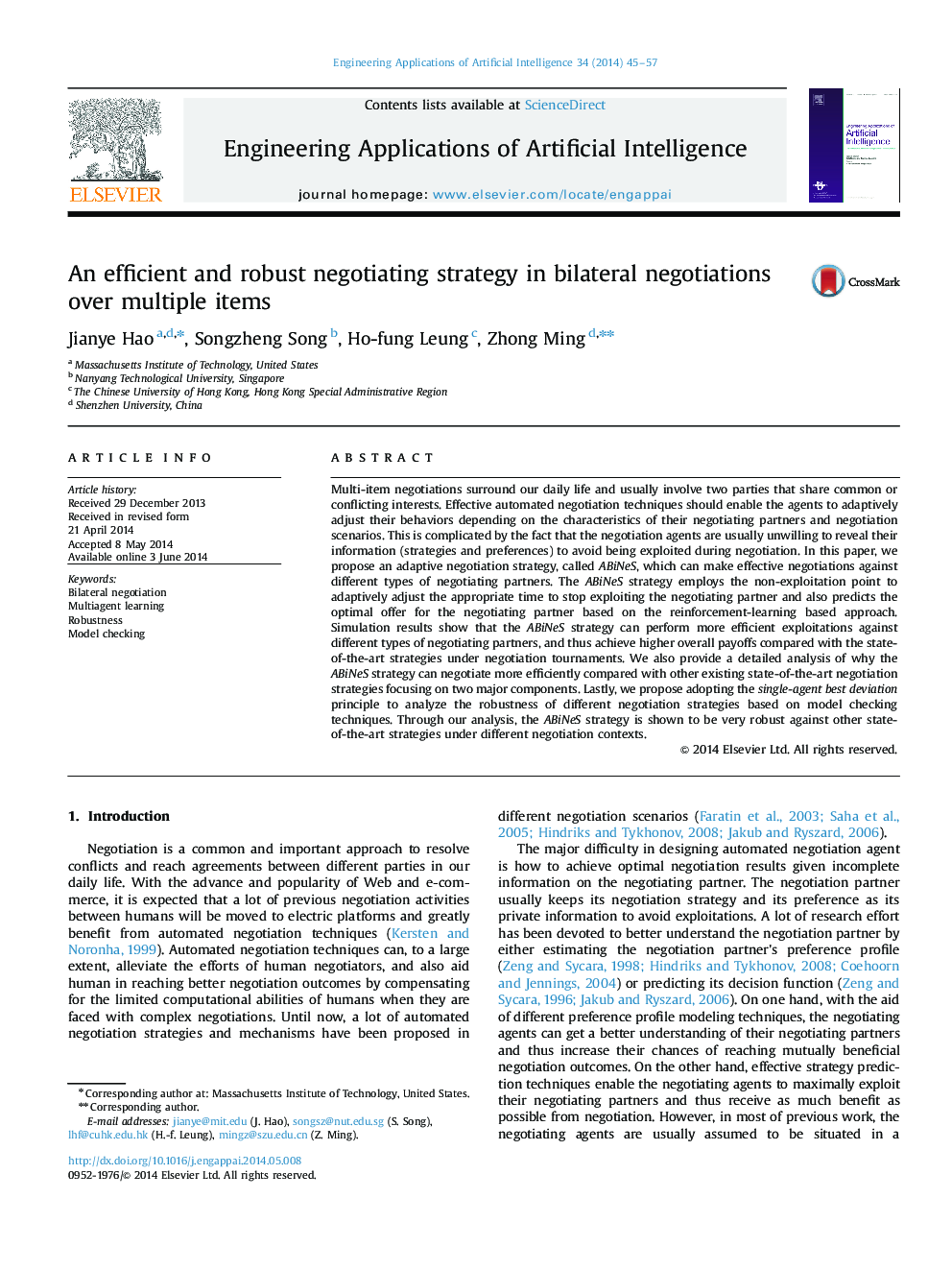| Article ID | Journal | Published Year | Pages | File Type |
|---|---|---|---|---|
| 380428 | Engineering Applications of Artificial Intelligence | 2014 | 13 Pages |
Multi-item negotiations surround our daily life and usually involve two parties that share common or conflicting interests. Effective automated negotiation techniques should enable the agents to adaptively adjust their behaviors depending on the characteristics of their negotiating partners and negotiation scenarios. This is complicated by the fact that the negotiation agents are usually unwilling to reveal their information (strategies and preferences) to avoid being exploited during negotiation. In this paper, we propose an adaptive negotiation strategy, called ABiNeS, which can make effective negotiations against different types of negotiating partners. The ABiNeS strategy employs the non-exploitation point to adaptively adjust the appropriate time to stop exploiting the negotiating partner and also predicts the optimal offer for the negotiating partner based on the reinforcement-learning based approach. Simulation results show that the ABiNeS strategy can perform more efficient exploitations against different types of negotiating partners, and thus achieve higher overall payoffs compared with the state-of-the-art strategies under negotiation tournaments. We also provide a detailed analysis of why the ABiNeS strategy can negotiate more efficiently compared with other existing state-of-the-art negotiation strategies focusing on two major components. Lastly, we propose adopting the single-agent best deviation principle to analyze the robustness of different negotiation strategies based on model checking techniques. Through our analysis, the ABiNeS strategy is shown to be very robust against other state-of-the-art strategies under different negotiation contexts.
